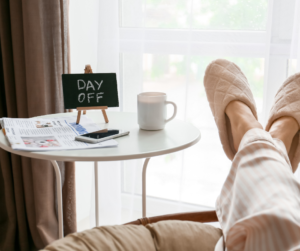Self-Care Tips for Counselors and Therapists in Consultation and Supervision
By Shannon Heers
As a counselor or therapist, your job is to help others heal and grow. And, it is important to remember that this work can be emotionally and mentally demanding. It is crucial for you to take care of yourself before you can take care of others.
Self-care is an essential part of being a therapist and can help you avoid burnout, maintain your well-being, and provide better care to your clients. Here are some self-care tips for counselors and therapists to practice and ask for when getting supervision and consultation.

Prioritize Self-Care
Just as you would ask your clients to do, you want to prioritize your own self-care. This means taking time for activities that bring you joy, reduce stress, and help you recharge. Some examples of self-care activities include exercise, meditation, reading, and spending time with family and friends.
Set Boundaries
It is important to set boundaries in your personal life as well as professionally. Putting up boundaries will help you to not overcommit and be able to take care of yourself. This could mean limiting after-hours contact with clients, avoiding checking emails outside of work hours, and being mindful about your workload and how it affects you.
Practice Mindfulness
Mindfulness is a powerful tool for reducing stress and promoting well-being. As you incorporate mindfulness practices such as meditation or yoga into your daily routine, you may find yourself staying more centered and focused even in the midst of your demanding work.
Seek Supervision or Consultation
Ongoing clinical supervision (or consultation, if you’re fully licensed) is an essential component of self-care for therapists. Supervision provides a supportive environment where you can discuss your experiences, receive feedback and guidance, and process any emotions that rise up as a result of your work.
Seek Support
It is also important to have a support network to help you manage the demands of your job. Seek support from colleagues, friends, family, or your own therapist. Talking about your feelings with someone who understands can help you feel better and regain your sense of balance.
Stay Connected
 As humans, we need connection. And as therapists, we crave connection even more. Staying connected with others is important for your emotional well-being. Attend professional events (in-person or virtual), join a clinical supervision group or clinical consultation group, or even a support group to maintain a sense of connection with others.
As humans, we need connection. And as therapists, we crave connection even more. Staying connected with others is important for your emotional well-being. Attend professional events (in-person or virtual), join a clinical supervision group or clinical consultation group, or even a support group to maintain a sense of connection with others.
Practice Good Sleep Hygiene
Good sleep is arguably the most important self-care tip that I can provide you with. Sleep hygiene is essential for maintaining good sleep habits. Make sure you are getting enough sleep, create a consistent sleep routine, and avoid electronic devices an hour before bedtime.
Engage in Self-Reflection
Therapists love to learn more about themselves! Regular self-reflection can help you gain insight into your experiences and emotions and help you grow as a person and professional. It can also help you identify areas of your life that may need attention. Consider journaling, therapy or a personal growth retreat to support your self-reflection process.
Be Kind to Yourself
Ah, therapists are so hard on themselves! It is important for you to be kind and compassionate towards yourself, especially when you are experiencing stress or uncertainty. Try self-compassion practices such as positive self-talk and treating yourself with the same kindness and compassion that you offer your clients.
Take Time Off
 Even you need a vacation sometimes! Taking time off is an essential aspect of self-care. Make sure you take time for yourself, whatever that means. You can go on vacation, take a weekend getaway, or simply take a few days off from work and do a fun or relaxing stay-cation.
Even you need a vacation sometimes! Taking time off is an essential aspect of self-care. Make sure you take time for yourself, whatever that means. You can go on vacation, take a weekend getaway, or simply take a few days off from work and do a fun or relaxing stay-cation.
In Conclusion
To sum it all up, self-care is an essential component of being a successful therapist. By prioritizing self-care, setting boundaries, practicing mindfulness, and seeking clinical supervision or consultation, you can help avoid burnout. These things will also help you maintain your well-being and provide better care to your clients. Remember, taking care of yourself isn’t selfish! It is necessary for you to be the best therapist you can be.
How we can help
Download our Free Burnout Prevention Checklist! You can also sign up for a free phone consultation to discuss options and learn more about us!
Author Bio
 Shannon Heers is a psychotherapist, approved clinical supervisor, guest blogger, and the owner of a group psychotherapy practice in the Denver area. Shannon helps adults in professional careers manage anxiety, depression, work-life balance, and grief and loss. Follow Firelight Supervision on Instagram.
Shannon Heers is a psychotherapist, approved clinical supervisor, guest blogger, and the owner of a group psychotherapy practice in the Denver area. Shannon helps adults in professional careers manage anxiety, depression, work-life balance, and grief and loss. Follow Firelight Supervision on Instagram.



